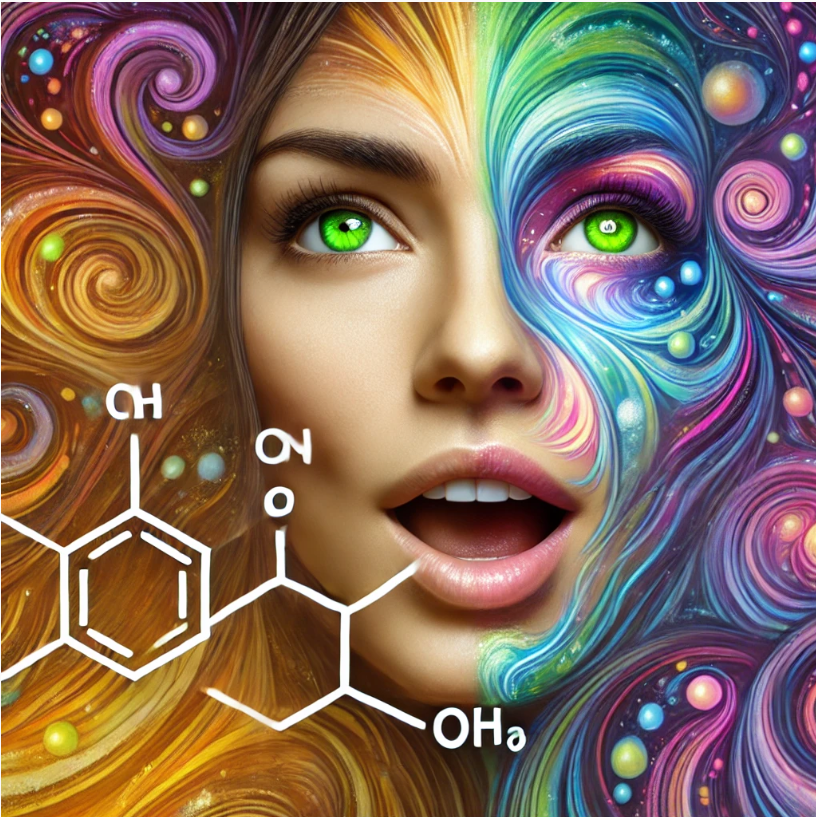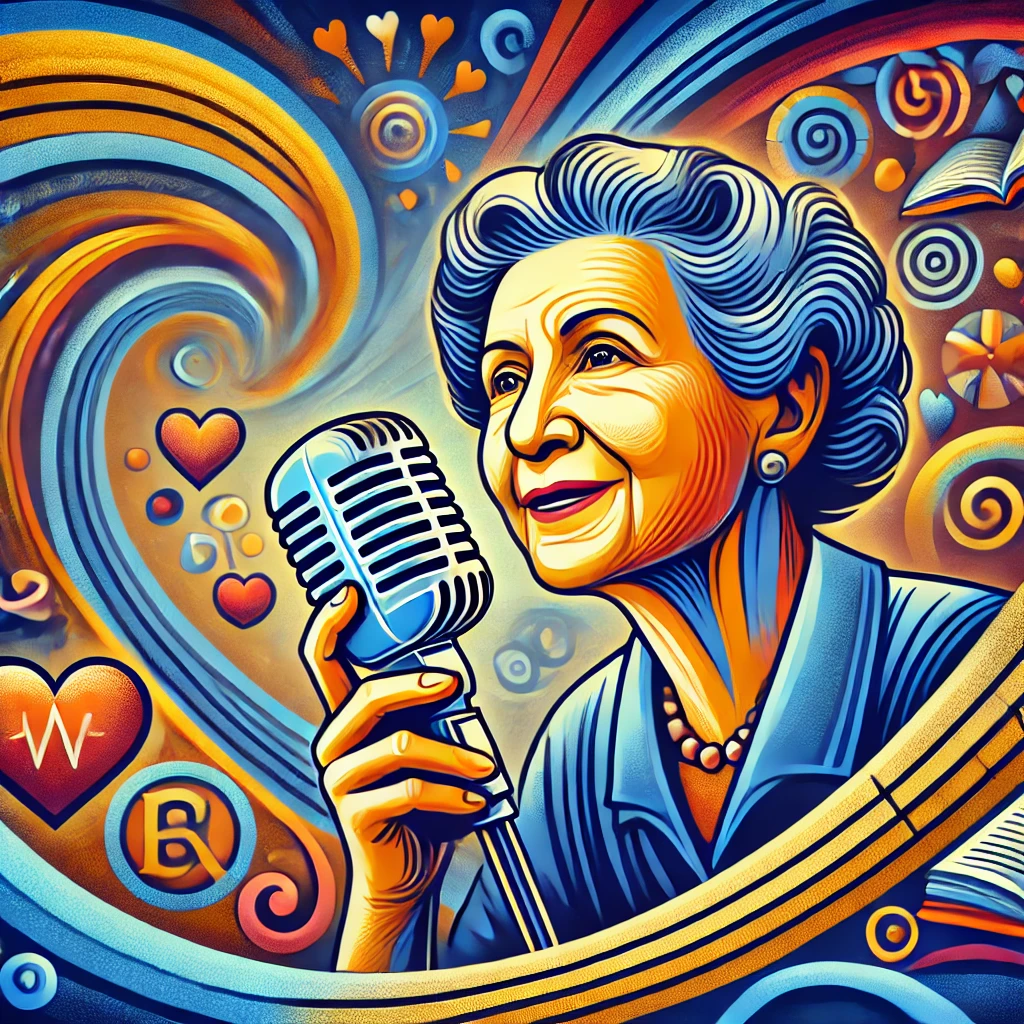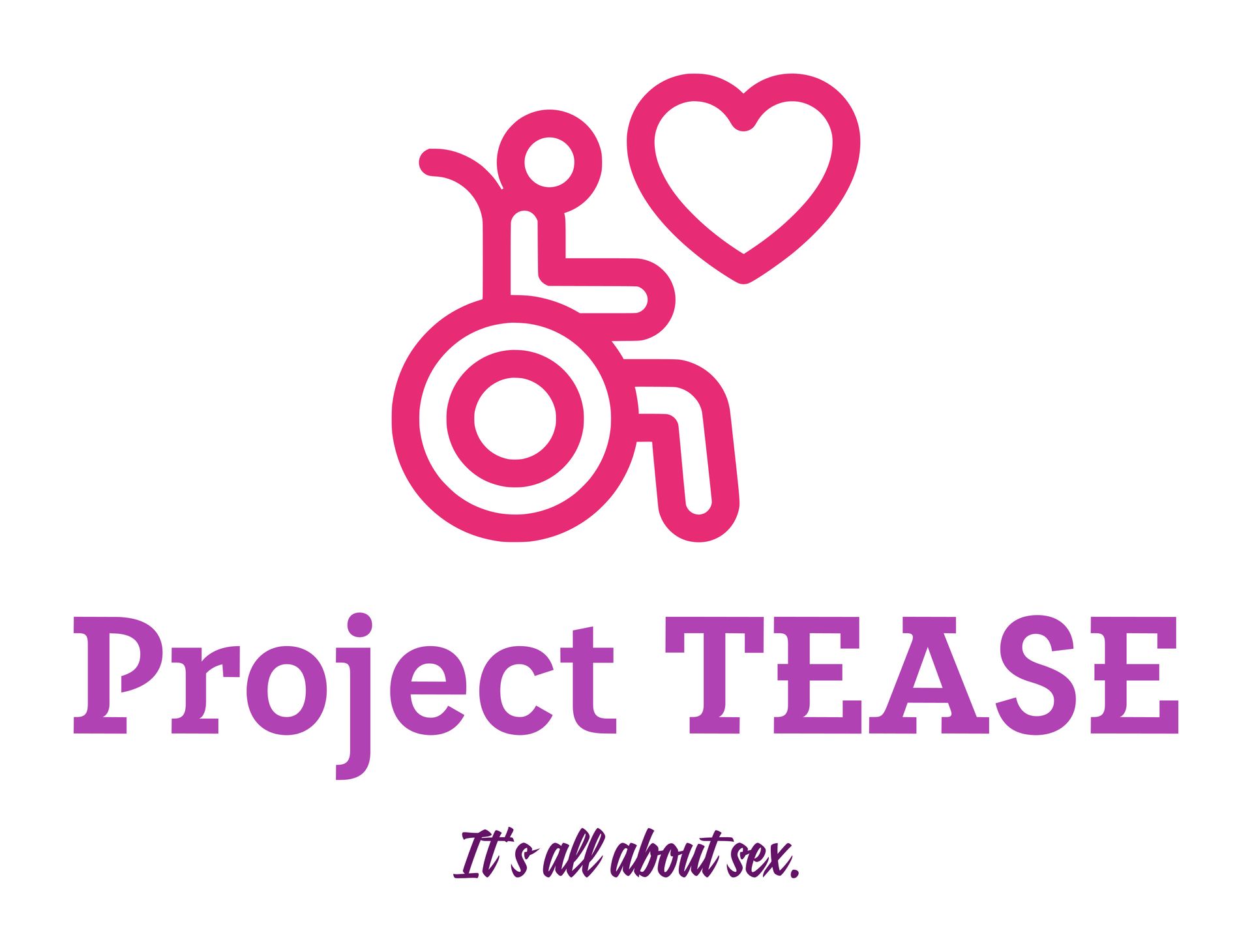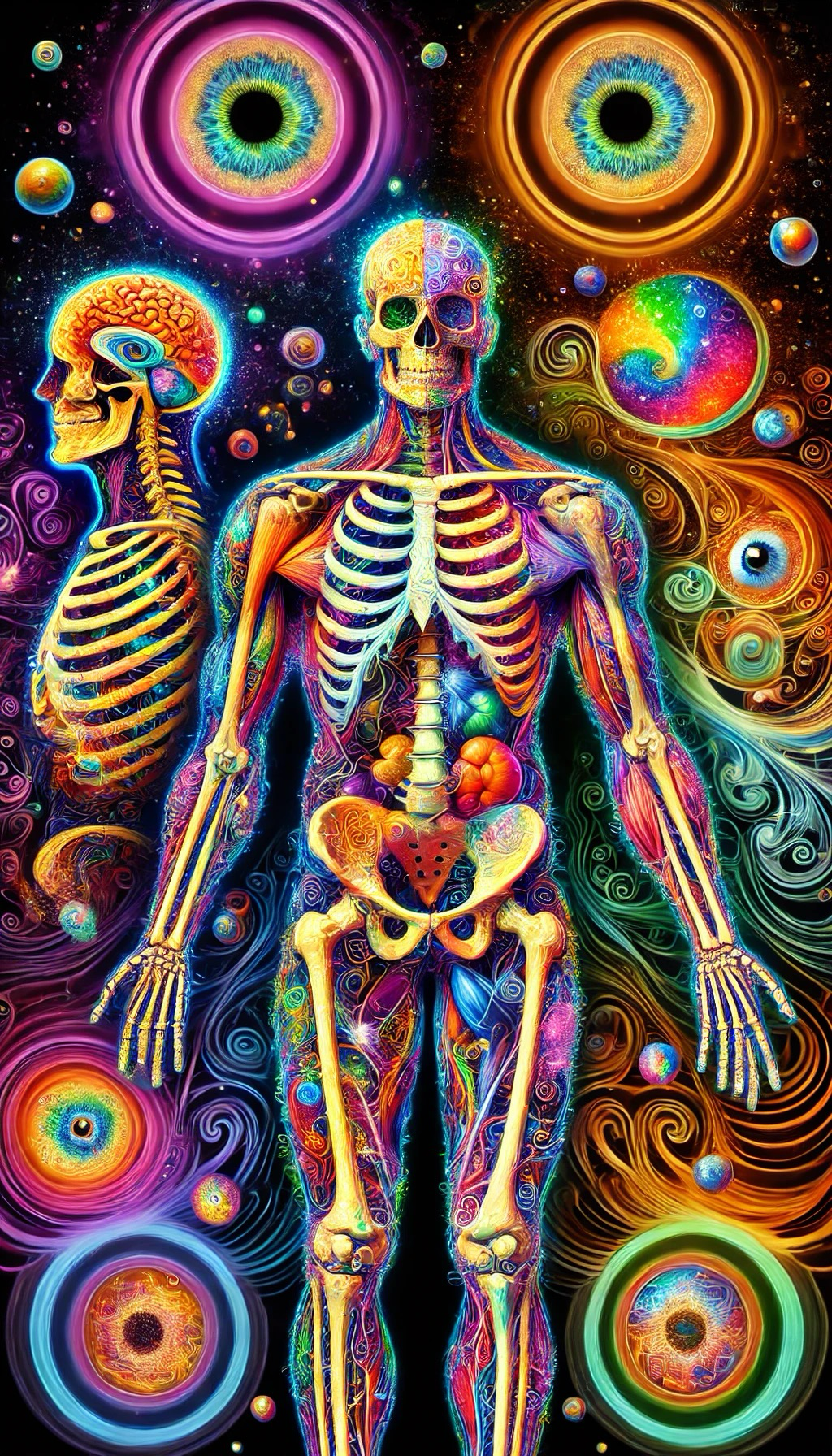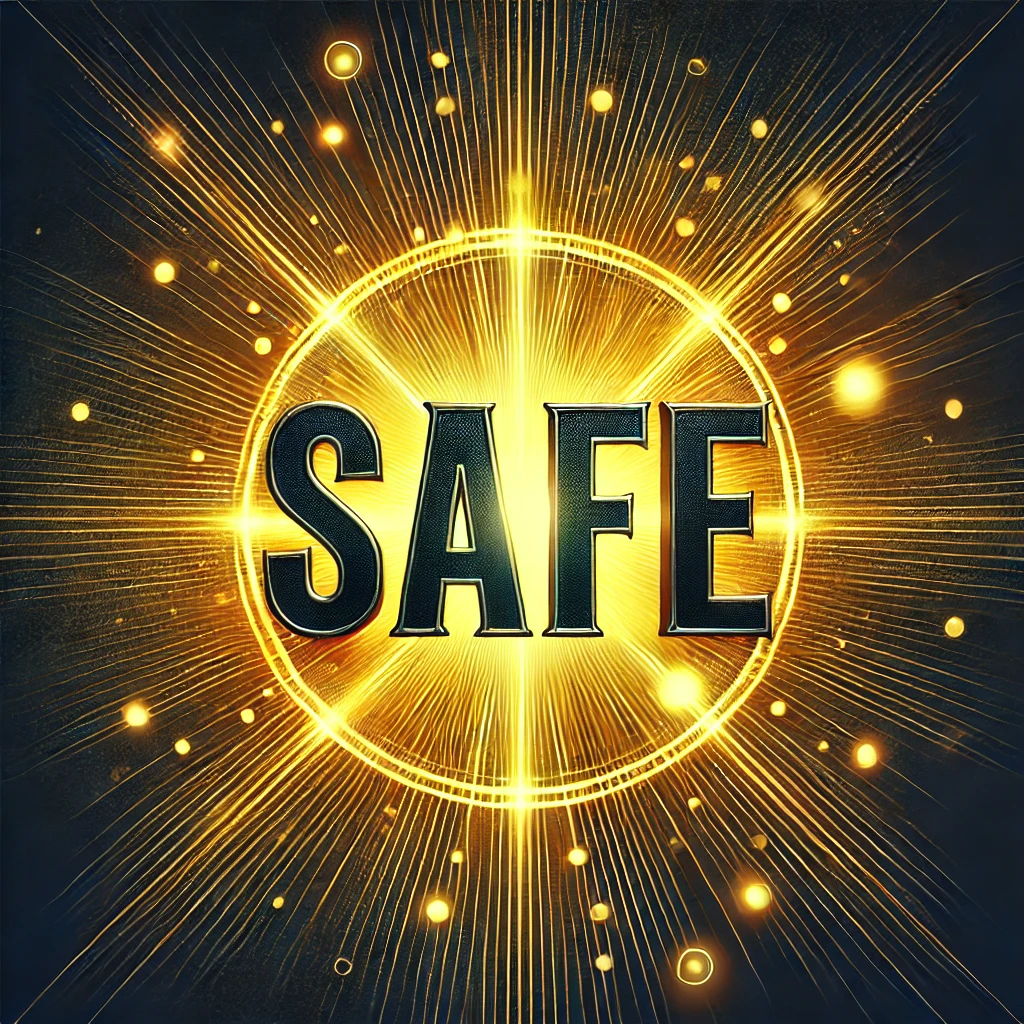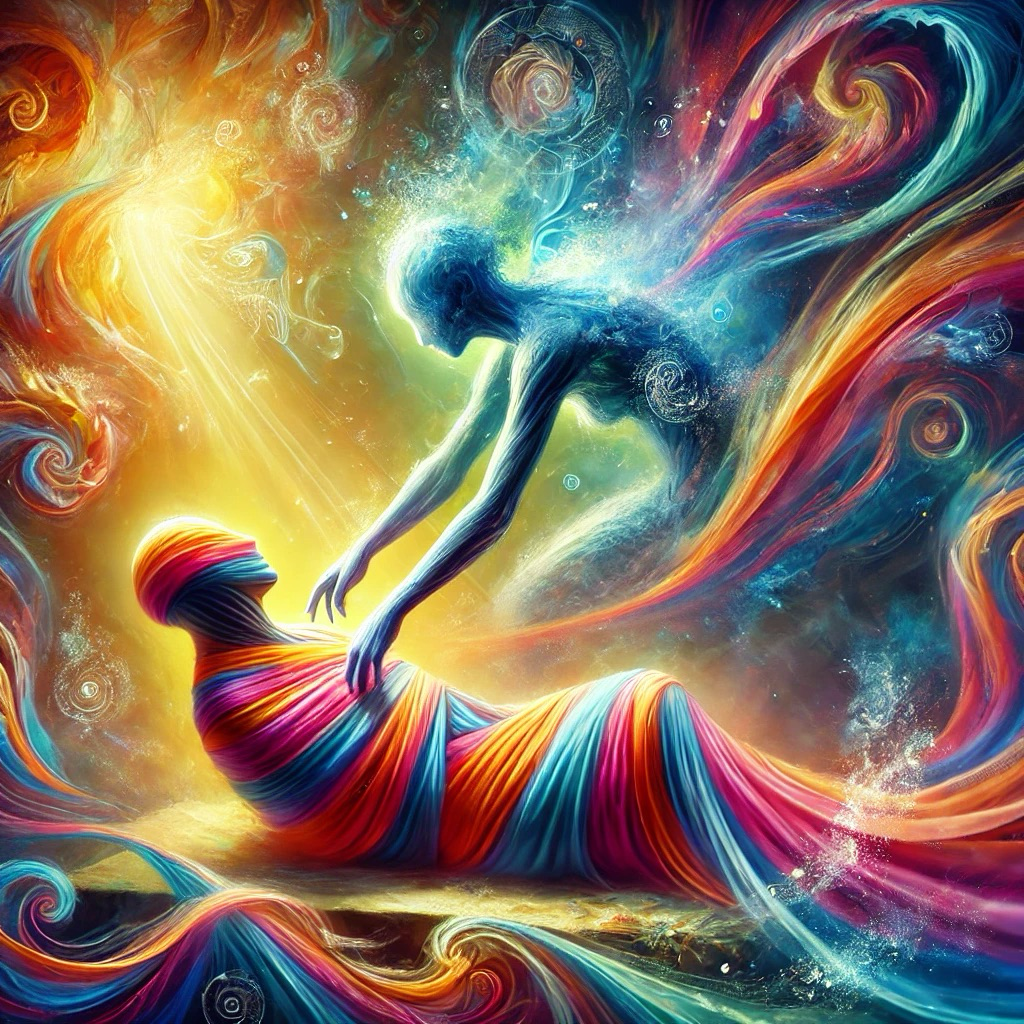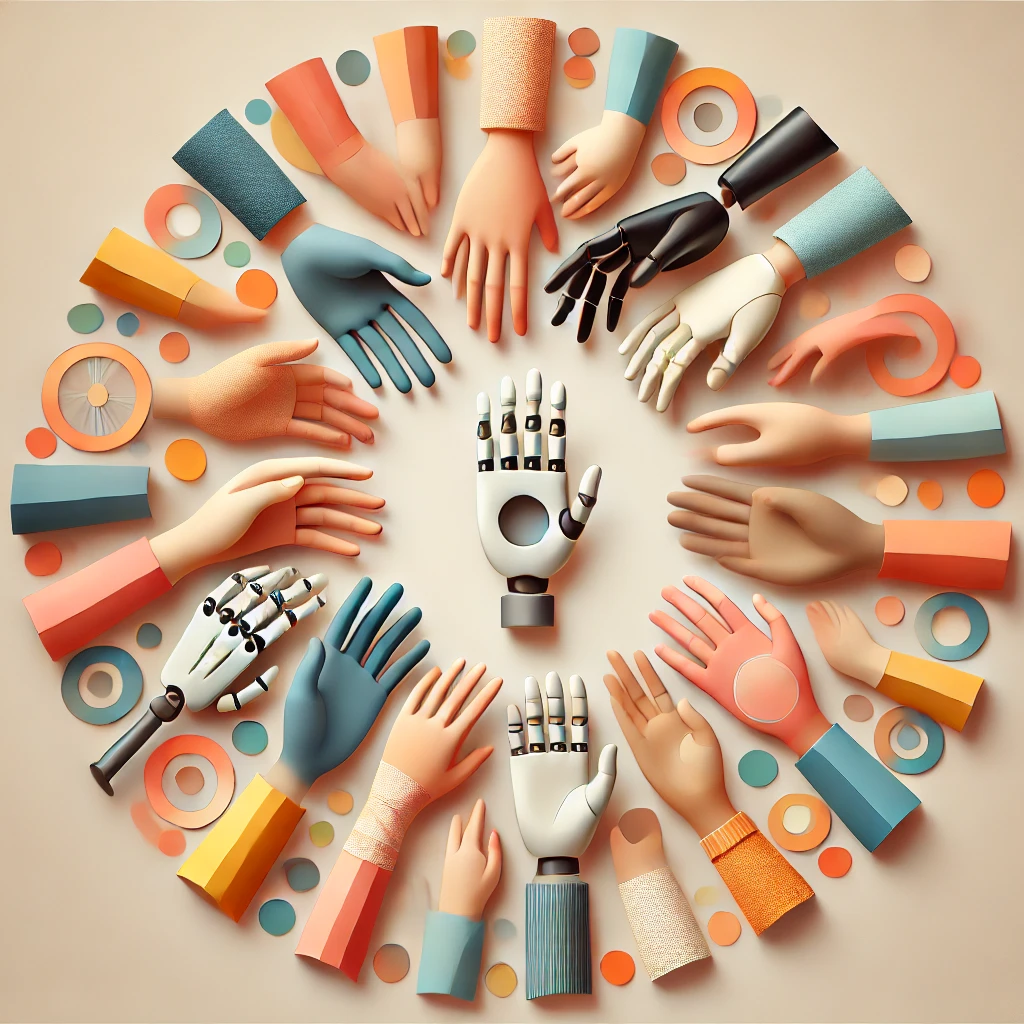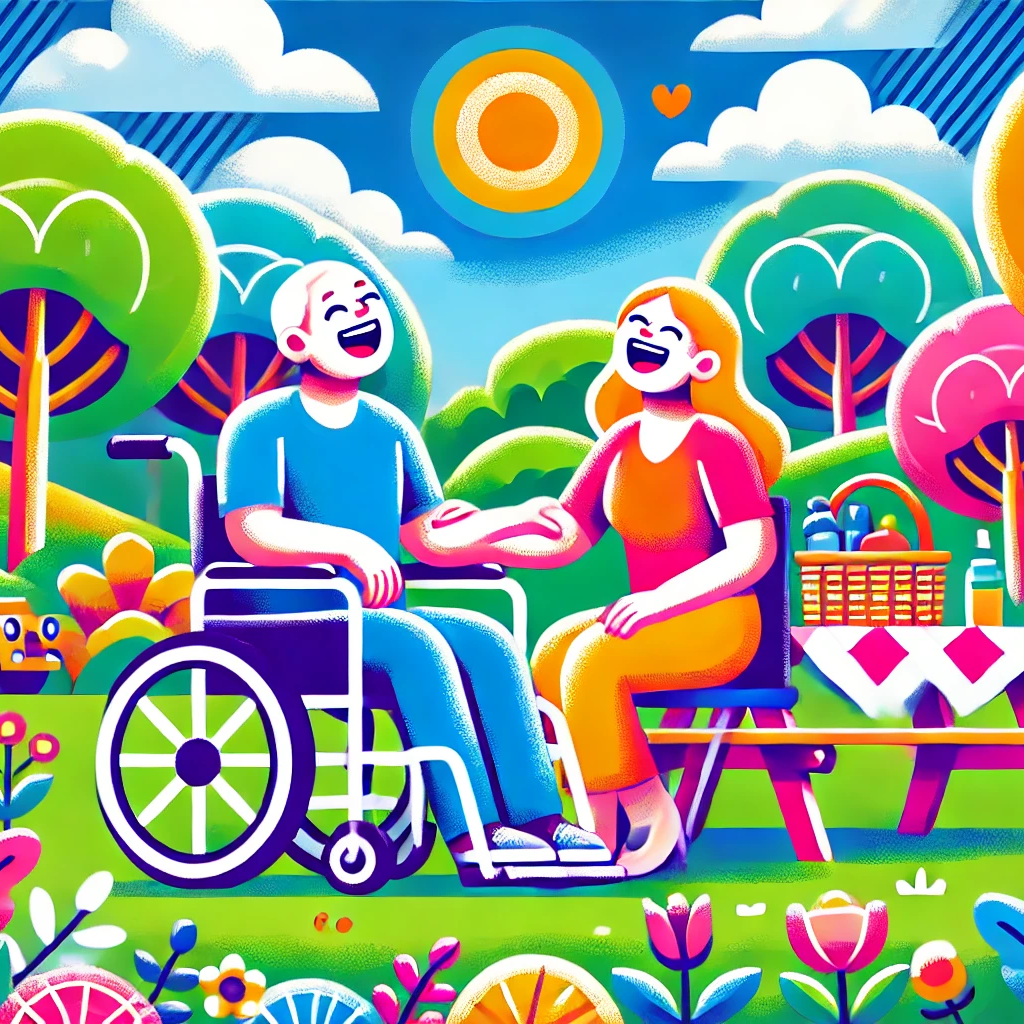Quill & Chill
Breaking Taboos: Talking About Disability and Pleasure
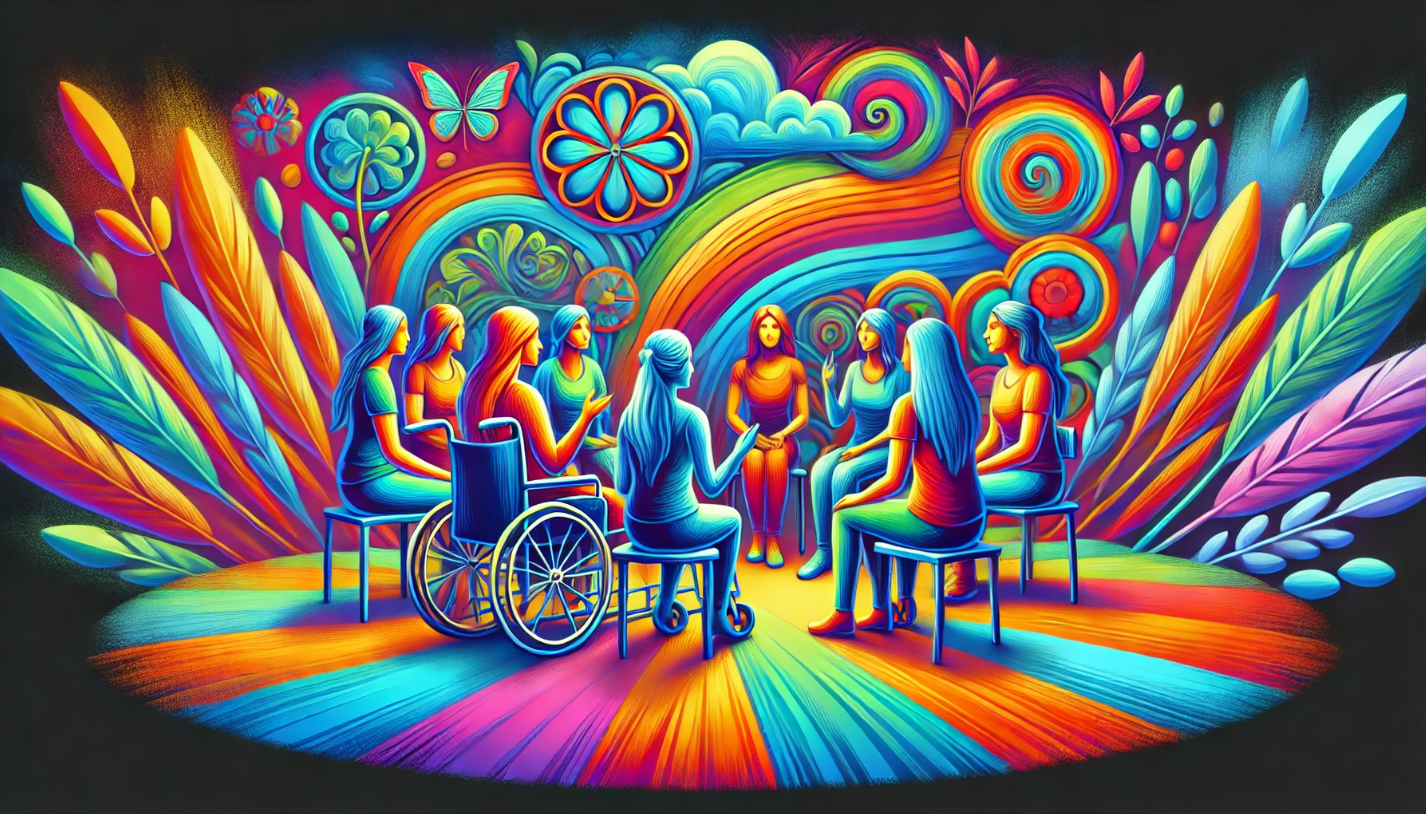
Hey there, fabulous ladies! It's time we dive into a topic that's long overdue for an open, honest, and fun conversation—disability and pleasure. As women with physical disabilities, our journeys are unique, filled with challenges, triumphs, and incredible strength. This guide is all about celebrating our experiences, breaking down those stubborn taboos, and embracing the joy and fulfillment that comes with understanding our bodies and desires. Ready to embark on this empowering journey? Let's go!
☙The Impact of Stigma❧
Stigma surrounding disability and pleasure can have profound emotional, psychological, and social effects. Understanding these impacts is the first step towards shattering them and reclaiming our narratives.
☙Emotional and Psychological Effects❧
❦Feelings of Shame
We've all been there—internalizing societal stigma that tells us our desires are something to be ashamed of. But guess what? They're not! Feeling shame is a natural response to a world that often misunderstands us, but it’s time to turn that narrative around.
❦Isolation
The fear of judgment can be paralyzing, leading to social isolation and a reluctance to seek relationships or pleasure. But isolation isn't our destiny. By opening up about our experiences, we can build connections and find solidarity.
☙Social Barriers and Discrimination❧
❦Lack of Representation
How often do we see women with disabilities represented in discussions about sexuality and pleasure? Not nearly enough! This lack of visibility reinforces harmful stereotypes, but together, we can push for more inclusive representation.
❦Discrimination
Facing prejudice and exclusion in both social and healthcare settings is a harsh reality for many of us. Discrimination can block access to necessary resources and support, but by advocating for our rights, we can challenge these barriers.
☙The Importance of Breaking Down Taboos❧
❦Normalizing Conversations
Let's make talking about disability and pleasure as normal as discussing our favorite movies. Open, honest conversations are key to dismantling stigma and fostering a more inclusive society.
❦Promoting Inclusivity
Creating a world that respects and celebrates diverse experiences, including our sexual desires, is essential. Inclusivity means recognizing that our experiences are valid and important.
☙Why This Taboo Exists: Historical Background❧
Understanding why the taboo around disability and pleasure exists requires a look into historical attitudes and cultural perceptions. These views have evolved but still impact us today.
☙Historical Perceptions of Disability❧
Historically, disability has often been misunderstood and stigmatized. In many ancient cultures, people with disabilities were seen as cursed or punished by the gods. This perception persisted into the Middle Ages and beyond, where disabled individuals were often marginalized and excluded from society.
☙Medical Model of Disability❧
The medical model, which dominated the 19th and 20th centuries, viewed disability primarily as a medical issue that needed to be "fixed." This approach reduced individuals to their physical conditions and ignored their social and emotional needs, including their sexuality.
☙Societal Attitudes Toward Sexuality❧
Societal attitudes towards sexuality have historically been conservative and restrictive, particularly regarding women. The combination of these attitudes with the medical model led to the belief that disabled individuals were asexual or incapable of experiencing sexual pleasure.
☙Cultural Shifts and Progress❧
The latter half of the 20th century saw significant cultural shifts. The disability rights movement began advocating for the social model of disability, which recognizes that societal barriers, rather than physical impairments alone, limit individuals. This movement also started addressing issues of sexuality and pleasure, although progress has been slow and ongoing.
☙Promoting Healthy Conversations❧
Healthy conversations about disability and pleasure are essential for breaking down stigma and promoting understanding. Here’s how we can make these discussions happen.
☙Strategies for Open and Honest Discussions❧
❦Educate Yourself
Knowledge is power, ladies! Learn about the intersection of disability and sexuality. Read up, ask questions, and never stop exploring. Check out Scarleteen and O.school for comprehensive resources.
❦Create Safe Spaces
Safe spaces are where magic happens. Establish environments where you and others feel comfortable sharing experiences without fear of judgment. Here are some tips for creating such spaces.
❦Listen Actively
When someone shares their story, listen with your heart. Active listening validates experiences and builds trust. Learn more about active listening techniques.
☙The Role of Education and Awareness❧
❦Inclusive Education
We need sex education that includes us! Push for curricula that address disability and sexuality, ensuring everyone gets accurate, inclusive information. Organizations like SIECUS advocate for comprehensive sexuality education.
❦Awareness Campaigns
Public awareness campaigns can change hearts and minds. Support and participate in campaigns that promote positive representations of disability and pleasure. Check out Lovehoney's blog for inclusive and educational content.
☙Creating Safe and Inclusive Spaces❧
❦Support Groups
Join or start support groups where you can share your experiences and get advice. These groups can be lifelines of understanding and encouragement. Disability and Sexuality Network is a great place to start.
❦Community Events
Organize or attend events that celebrate and promote understanding of disability and pleasure. These gatherings can be empowering and fun! Look into events hosted by organizations like Sins Invalid.
☙Personal Stories and Experiences❧
Personal stories are powerful tools for breaking down stigma and promoting understanding. Let’s dive into some inspiring narratives from women like us.
☙Real-Life Stories❧
Sara's Story
Meet Sara, a dynamic woman with a spinal cord injury. After a car accident left her paralyzed from the waist down, Sara faced immense physical and emotional challenges. Initially, she felt disconnected from her body, experiencing a profound sense of loss and grief. She struggled with the idea of pleasure, feeling her body had betrayed her.
But Sara's journey didn't end there. Through therapy, she began to explore her body anew, discovering areas of sensitivity she hadn't noticed before. A pivotal moment was when she found a support group for women with similar experiences. Sharing stories, frustrations, and triumphs, Sara realized she wasn't alone.
Her first attempts at intimacy post-injury were fraught with anxiety. But with patience, self-love, and an understanding partner, Sara began to rediscover her sexual self. Communication was key—she learned to articulate her needs and boundaries clearly. Experimenting with different forms of intimacy, from gentle touch to the use of adaptive devices, helped her reconnect with her body. Sara's journey highlights the importance of patience, self-acceptance, and finding adaptive ways to connect with her body and pleasure.
Liam's Story
Liam’s experience with muscular dystrophy and dating shows that exploration and communication are key. Growing up, Liam often felt invisible in conversations about relationships and sexuality. His condition progressively weakened his muscles, making him dependent on a wheelchair by his late teens. He initially found dating daunting, fearing rejection due to his condition.
Liam embraced online dating, which allowed him to present his personality first. His profile was honest about his condition, emphasizing his interests and humor. He faced several rejections but also met wonderful people willing to explore a relationship with him.
His first significant relationship taught him valuable lessons about communication. Liam and his partner had to navigate physical limitations together, finding creative solutions to intimacy. They discovered that pleasure wasn't just about physical acts but also emotional connection and trust. They experimented with different positions and aids, ensuring comfort and enjoyment for both. Liam’s story emphasizes that love and pleasure are possible for everyone when there's openness and understanding.
☙Overcoming Challenges and Embracing Pleasure❧
Women like Sara demonstrate that overcoming societal barriers and embracing our desires is possible. Their stories inspire us to accept ourselves and seek out the pleasure we deserve.
☙Celebrating Positive Experiences❧
❦Milestones
Celebrate your milestones, big or small. Whether it’s exploring a new aspect of your sexuality or building a meaningful relationship, these moments matter.
❦Community Support
Find and cherish supportive communities. They play a crucial role in fostering positive experiences and providing the encouragement we need.
☙Support and Resources❧
Access to support and resources is vital for navigating disability and pleasure. Here are some fantastic organizations and groups that can help.
☙Organizations and Groups❧
❦The Center for Sexual Pleasure and Health (CSPH)
This organization provides education and resources on sexual health and pleasure. It’s a great place to start if you’re looking for information and support. Visit their website here.
❦Sins Invalid
Sins Invalid promotes disability justice and artistic expression related to sexuality and disability. They offer a platform for voices like ours to be heard and celebrated. Learn more about them here.
❦Disability and Sexuality Network (DSN)
DSN offers support and resources for disabled individuals exploring their sexuality. It’s a community where you can share experiences and find solidarity. Check them out here.
❦Project TEASE
Currently being resurrected by Feathers and Ice, Project TEASE aims to provide accessible sex education and resources for disabled individuals. Learn more about their mission and services here.
☙Online Resources and Communities❧
❦Websites
Websites like Scarleteen and O.school provide comprehensive sexual education resources that are inclusive of all abilities. Dive into these sites for a wealth of information.
❦Blogs
For more in-depth discussions and tips on sex education, check out the Feathers and Ice blog, which covers a range of topics including BDSM, kink, and inclusive sex practices.
❦Forums
Online forums can be a great way to connect with others who share your experiences. These spaces offer community and support, fostering open dialogue. Explore forums on Reddit's Disability and Disability and Sexuality on Psychforums.
☙How to Find and Access Support❧
❦Local Support Groups
Look for local groups through community centers or online. Face-to-face interactions in a supportive group can be incredibly affirming. Search for local resources via platforms like Meetup.
❦Professional Counseling
Seek out therapists who specialize in disability and sexuality. Professional counseling offers personalized guidance and support tailored to your needs. Use directories like Psychology Today to find a therapist.
❦Helplines
Don’t hesitate to use hotlines for immediate support and guidance. These resources are there to help you navigate challenging moments. Examples include SAMHSA's National Helpline and Crisis Text Line.
Breaking taboos around disability and pleasure is crucial for promoting healthy and fulfilling lives for disabled women. By fostering open conversations, sharing personal stories, and providing access to support, we can work towards a more inclusive and understanding society. So, let’s keep talking, sharing, and supporting each other. You deserve to explore and enjoy your desires freely and confidently. Together, we can make this world a more inclusive place where everyone’s experiences are valued and celebrated.
☙More Helpful Links❧
- How to Create Safe Spaces for Sensitive Conversations
- The Importance of Inclusive Sexual Education
- Navigating Social Barriers in Relationships
- The Center for Sexual Pleasure and Health (CSPH)
- Sins Invalid
- Disability and Sexuality Network (DSN)
- Scarleteen
- O.school
- SIECUS
- Lovehoney's blog
- SAMHSA's National Helpline
- Crisis Text Line
- Project TEASE
- Feathers and Ice blog
